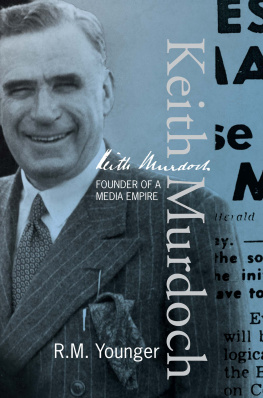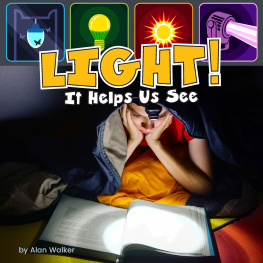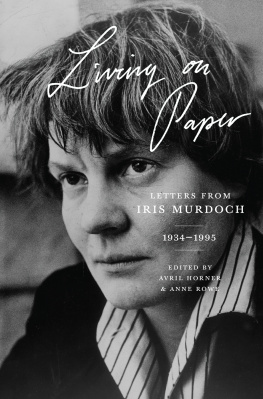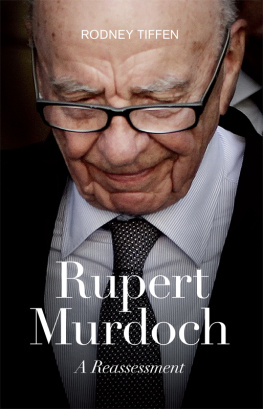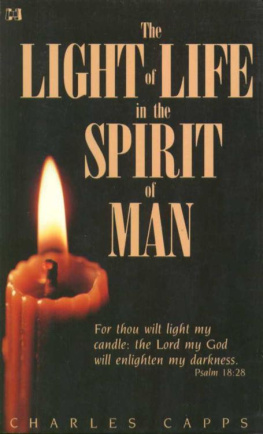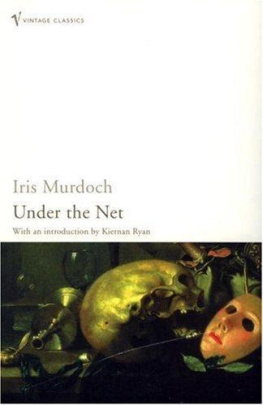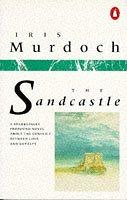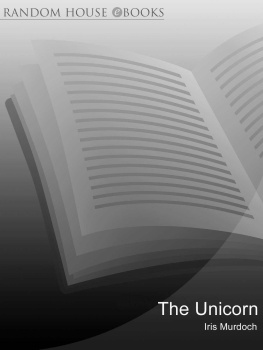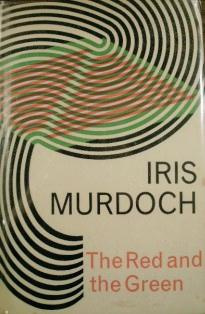Murdoch - New Light Shine
Here you can read online Murdoch - New Light Shine full text of the book (entire story) in english for free. Download pdf and epub, get meaning, cover and reviews about this ebook. City: New Haven;Conn, year: 2012, publisher: Yale University Press, genre: Detective and thriller. Description of the work, (preface) as well as reviews are available. Best literature library LitArk.com created for fans of good reading and offers a wide selection of genres:
Romance novel
Science fiction
Adventure
Detective
Science
History
Home and family
Prose
Art
Politics
Computer
Non-fiction
Religion
Business
Children
Humor
Choose a favorite category and find really read worthwhile books. Enjoy immersion in the world of imagination, feel the emotions of the characters or learn something new for yourself, make an fascinating discovery.

- Book:New Light Shine
- Author:
- Publisher:Yale University Press
- Genre:
- Year:2012
- City:New Haven;Conn
- Rating:3 / 5
- Favourites:Add to favourites
- Your mark:
- 60
- 1
- 2
- 3
- 4
- 5
New Light Shine: summary, description and annotation
We offer to read an annotation, description, summary or preface (depends on what the author of the book "New Light Shine" wrote himself). If you haven't found the necessary information about the book — write in the comments, we will try to find it.
Murdoch: author's other books
Who wrote New Light Shine? Find out the surname, the name of the author of the book and a list of all author's works by series.
New Light Shine — read online for free the complete book (whole text) full work
Below is the text of the book, divided by pages. System saving the place of the last page read, allows you to conveniently read the book "New Light Shine" online for free, without having to search again every time where you left off. Put a bookmark, and you can go to the page where you finished reading at any time.
Font size:
Interval:
Bookmark:
THE YALE DRAMA SERIES
 David Charles Horn Foundation
David Charles Horn Foundation
The Yale Drama Series is funded by the generous support of the David Charles Horn Foundation, established in 2003 by Francine Horn to honor the memory of her husband, David. In keeping with David Horns lifetime commitment to the written word, the David Charles Horn Foundation commemorates his aspirations and achievements by supporting new initiatives in the literary and dramatic arts.
SHANNON MURDOCH
Foreword by John Guare

Copyright 2012 by Shannon Murdoch.
All rights reserved.
This book may not be reproduced, in whole or in part, including illustrations, in any form (beyond that copying permitted by Sections 107 and 108 of the U.S. Copyright Law and except by reviewers for the public press), without written permission from the publishers.
Yale University Press books may be purchased in quantity for educational, business, or promotional use. For information, please e-mail sales.press@yale.edu (U.S. office) or sales@yaleup.co.uk (U.K. office).
Set in ITC Galliard type by Duke & Company, Devon, Pennsylvania.
Printed in the United States of America.
Library of Congress Cataloging-in-Publication Data
Murdoch, Shannon.
New light shine / Shannon Murdoch ; foreword by John Guare.
p. cm.(Yale drama series)
ISBN 978-0-300-18485-3 (pbk. : alk. paper) 1. Brothers and sisters
Drama. 2. Family secretsDrama. 3. Violent crimesDrama.
I. Guare, John. II. Title.
PR9619.4.M845N49 2012
822.92dc23
2012012160
A catalogue record for this book is available from the British Library.
This paper meets the requirements of ANSI/NISO Z39.481992 (Permanence of Paper).
10 9 8 7 6 5 4 3 2 1
All inquiries concerning stock and amateur rights should be addressed to Shannon Murdoch at shannon.e.murdoch@gmail.com . No stock or amateur performances of the play may be given without obtaining in advance the written permission of Shannon Murdoch, and paying the requisite fee.
For ACM and KDW, for everything
F rancine Horn had the very good idea to establish a prize in honor of her late husband whose greatest ambition was to become a writer. His subsequent disappointment was never being published. Close, but never. He went into another line of work in which he found financial success. But that loose tooth was always there.
After his death, Mrs. Horn, a very sprightly elfin powerhouse, took the advice of her lawyers and went to Yale University Press with the idea of founding a prize that would commemorate his memory by publishing new writers. John Kulka, a senior editor at the Press, told her that while fiction writers had many prizes open to them, playwrights were under-represented as well as being underpublished. She leapt at his point.
Was there a model to follow?
Yes, look at the renowned Yale Series of Younger Poets, which annually publishes the work of a previously unpublished poet under the age of forty. It is the oldest literary prize in America. That prize has always been awarded by a sole judge who must be a recognized poet. Over the years Archibald MacLeish, W.H. Auden, W.S. Merwin, and Louise Glck have taken on that distinguished role. Since its inception in 1919 it has introduced the work of young unknown poets like Adrienne Rich, James Agee, W.S. Merwin, John Ashbery, and John Hollander.
The David Charles Horn Foundation/Yale Drama Series Prize, mirroring the poetry prize, would honor an emerging playwright of the English-speaking world annually. Yale University Press would publish the chosen play; the playwright of choice would also receive a cash prize as well as a reading of the play in an established American theater with professional actors. Would it be only for playwrights under forty? No. There would be no ground rules involving age or gender or theme. The only qualification: the playwright who enters the contest cannot have been published or have had a major production of his or her work. The only qualification was the entrant had to be alive and unknown.
There would be one judge, a playwright.
Edward Albee was the obvious choice to go first, a position he held for two years; David Hare took on the task for another two years. They passed the baton on to me this past year.
My god! The 2011 contest received over eight hundred new plays from around the English-speaking world. They came from some small town in the American Midwest or Seattle or Brooklyn or a village in Ireland or Australia or Canada, the midlands of England or the center of London. And they read about this contest and they all wanted to emergeanother way of saying, How do I get noticed? In this cacophony of voices out there, how will my play aka mehow will I be heard?
Edward and David advised me to assemble a team of readers whose taste I trusted, whose theatrical acumen I respected, and whose sensibilities were not mirrors of mine.
I got my team. People like Thomas Keith, who edited new editions of Tennessee Williamss unpublished work for New Directions, to help me get through them. Jamie Phillips and Eric Louie, who read for the Public Theater. Young playwrights on the brink of emerging like Michael Mitnick, Kim Rosenstock, and Susan Stanton, who knew being readers made them not eligible.
Yale University Press sent us the entries, split up among the readers and myself. We dove in. How not to get lost?
I asked another of my readers, Mary Pat Walsh, who had worked as my assistant for eleven years, then ran Nora Ephrons production company, and now worked for Stephen Sondheim, how she proceeded in the task of reading these hundreds of scripts.
She answered: I read first and foremost for a voice. My second criteria is, Are they attempting to tackle a story or subject matter that is specific and challengingthis does not mean to me that it has to be complex but that they are writing from an original place and have a sense of how to tell a story. Some of the plays may not be fully realized but I leave them on my list because of the reasons I just mentioned. After Ive read all of my plays I go back and reread the ones that have made the cut and then it helps me make decisions based on the level of craft when considering them side by side and then the decisions are easier.
I sent this to my other readers as a guide.
The voice. An original voice unlike any other voice. Lets look for that first. Some of the voices were muted. Other voices were more troubling, brilliant ventriloquists writing plays that echoed a TV sitcom or mimicked with varying degrees of success Mamets or Pinters or Becketts inimitable voices. Some plays began beautifully. Yes! Is this the winner? Then the play would crumble. Turn sentimental. Become formulaic. Chicken out. Other plays lay on the page DOA. What were these peoples lives like? Had they ever seen a play? Where did they go to see theater? Why did they decide to write a play?
Six weeks later we convened to review what we had read so far and pass on to the others those plays we felt worthy of a second look.
Someone brought up a point. A few respected novelists whose names we knew had submitted first plays. Were they emerging? I thought of David Horn and his disappointment at never being published. I decided we must disqualify those entries.
But the question floated in the air: Who does qualify as an emerging playwright?
I had assumed in a snooty parochial way that the winner would be a recent graduate of one of the playwriting programs around the country: the Yale Drama School, the granddaddy of them all, which George Pierce Baker started at Harvard in the teens, attracting young aspirants such as Eugene ONeill and Philip Barry. When Harvard unaccountably dropped it, Yale happily gave it a home in 1924 with a spanking new theater.
Next pageFont size:
Interval:
Bookmark:
Similar books «New Light Shine»
Look at similar books to New Light Shine. We have selected literature similar in name and meaning in the hope of providing readers with more options to find new, interesting, not yet read works.
Discussion, reviews of the book New Light Shine and just readers' own opinions. Leave your comments, write what you think about the work, its meaning or the main characters. Specify what exactly you liked and what you didn't like, and why you think so.

